Personalized Treatment
Each patient receives a customized plan addressing their specific type of nephrotic syndrome, symptoms, and lifestyle. From medications to advanced interventions, the goal is to enhance health outcomes.
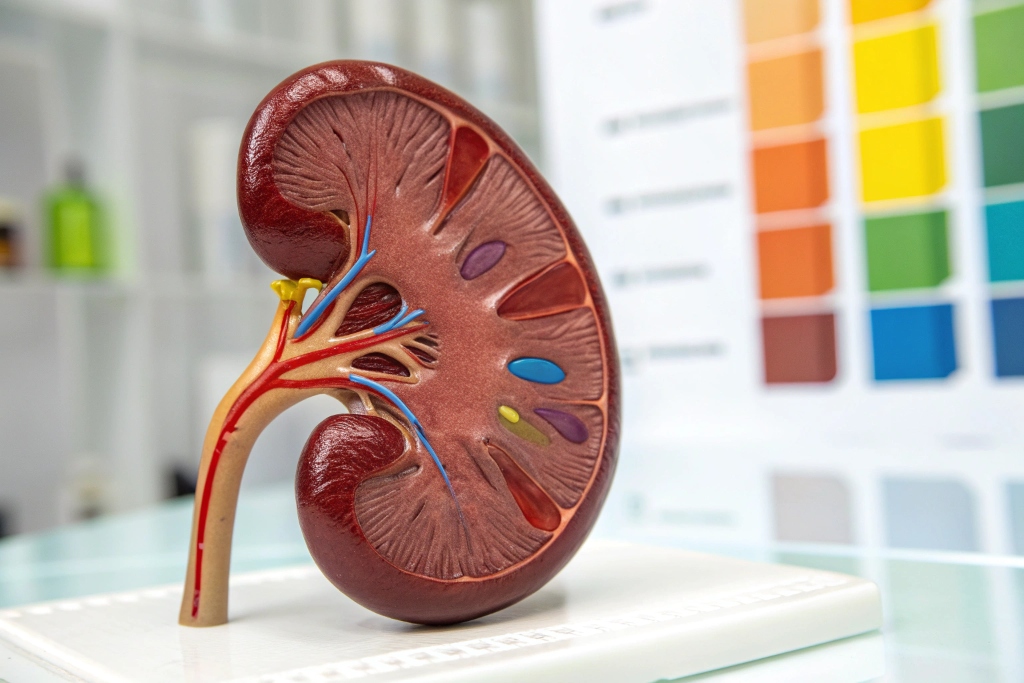
Nephrotic syndrome is a kidney disorder that can significantly impact health, requiring specialized care to manage its symptoms and complications. As a leading provider of nephrotic syndrome treatment in Gorakhpur, Dr. Arpit Srivastava offers comprehensive, patient-centered care to address this condition effectively. He provides complete support for patients, including understanding its types, causes, symptoms, diagnosis, treatment options, advanced services, and preventive measures. With a focus on compassionate and accessible treatment, patients across Purvanchal receive world-class nephrology services tailored to their needs.
Nephrotic syndrome is a kidney condition characterized by excessive protein loss in the urine (proteinuria), low blood protein levels, high cholesterol, and swelling (edema). It occurs when the kidneys’ filtering units, called glomeruli, are damaged, allowing proteins like albumin to leak into the urine. This disruption affects the body’s fluid balance, leading to a range of symptoms and potential complications.
+91-7302104205Nephrotic syndrome can be classified based on its underlying cause. Understanding the type is essential for effective treatment. The main types include:
Each type requires a specific diagnostic and treatment approach, guided by a kidney care specialist in Gorakhpur.
Quick and easy online scheduling
+91-7302104205 arpitnephro@yahoo.comProviding advanced kidney care at Regency Hospital, Gorakhpur
Nephrotic syndrome can arise from various factors, ranging from kidney-specific issues to systemic diseases. Common causes include:
Identifying the cause is critical for effective acute kidney injury treatment in Gorakhpur, allowing targeted interventions to restore kidney function.
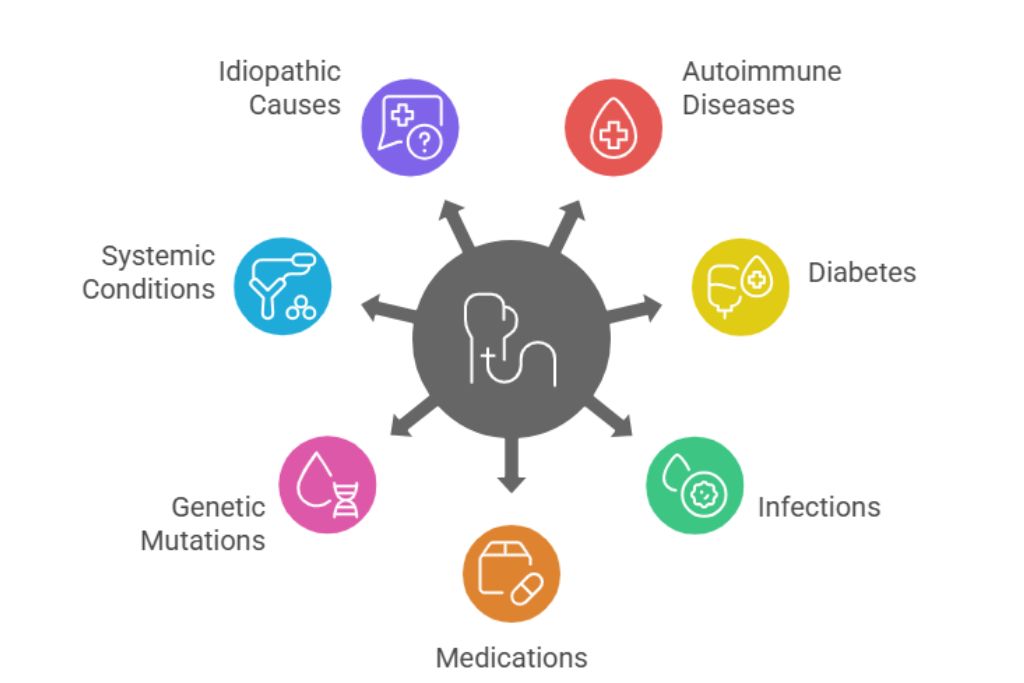
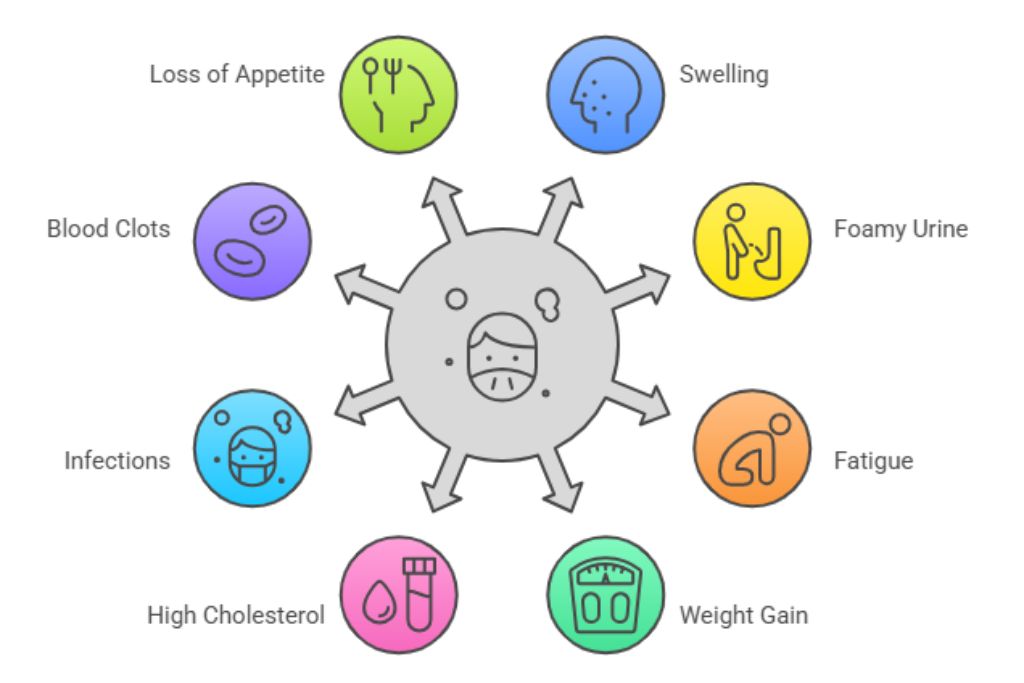
Nephrotic syndrome symptoms can vary in severity, often developing gradually. Recognizing these signs early is essential for timely care. Common symptoms include:
If you experience these symptoms, consulting a kidney disease specialist in Gorakhpur is vital for prompt diagnosis and management.
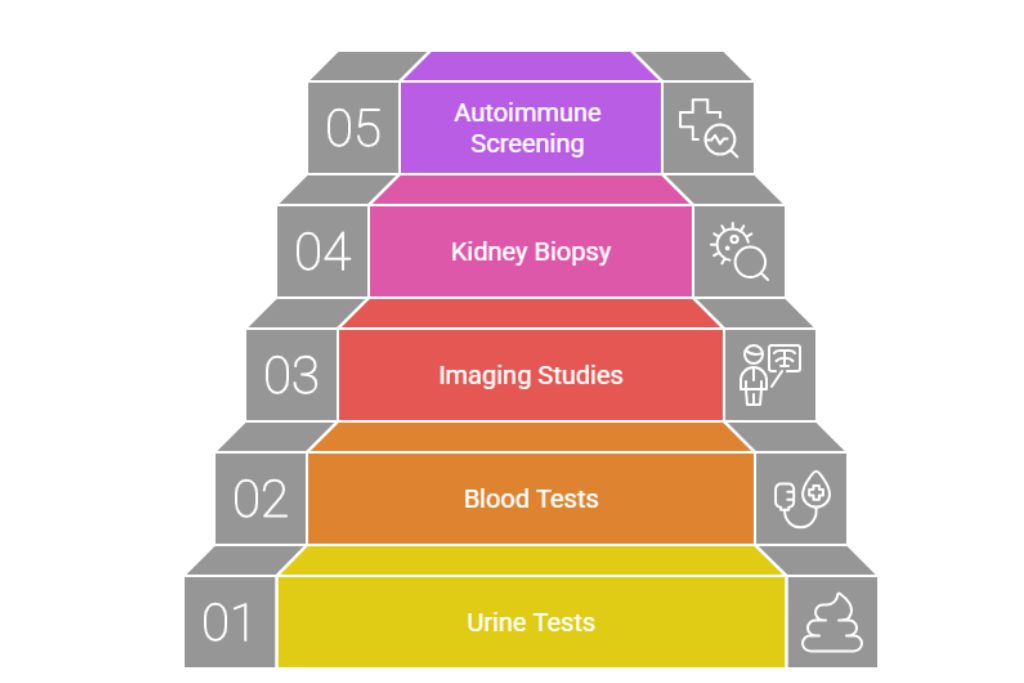
Accurate diagnosis is the foundation of effective nephrotic syndrome management. Advanced diagnostic tools are used to confirm the condition and identify its cause. These include:
Nephrotic syndrome treatment is highly personalized. Depending on the cause and severity, it may involve medications, lifestyle changes, or advanced interventions such as dialysis or kidney transplant. Common treatment options include:
Medications are often the first line of treatment:
Lifestyle modifications support medical treatment:
In severe or resistant cases, advanced treatments may be needed: Dialysis: For patients with significant kidney damage progressing to end-stage renal disease (ESRD). Kidney Transplant: A long-term solution for ESRD caused by nephrotic syndrome, guided by a kidney transplant doctor in Gorakhpur.
Specialized services are offered to support patients with nephrotic syndrome, ensuring comprehensive care:
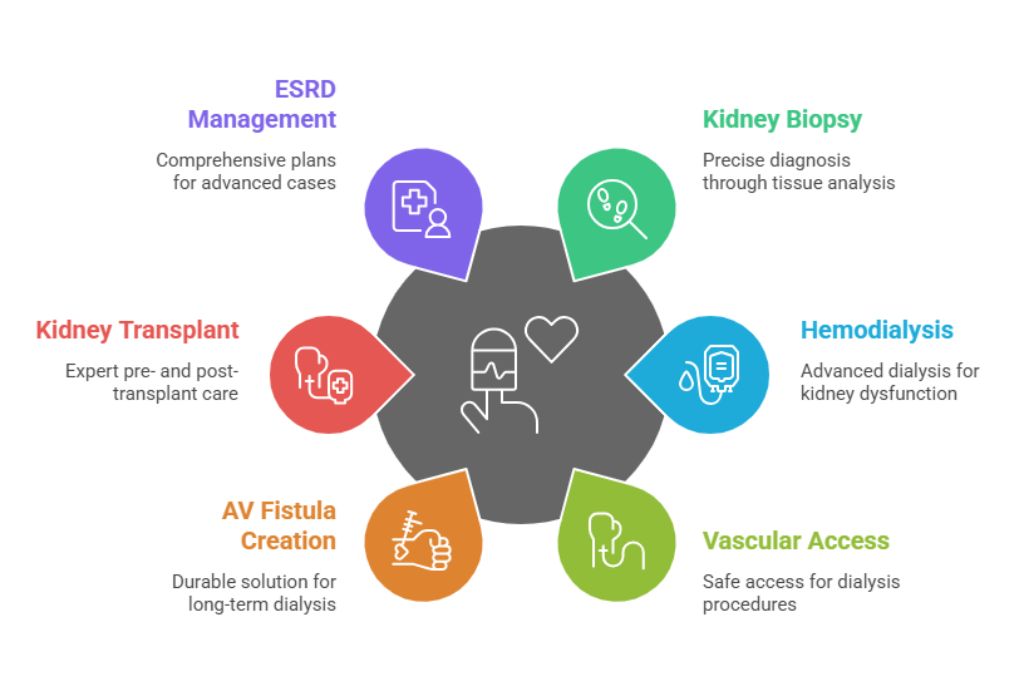
While some causes of nephrotic syndrome, like genetic conditions, cannot be prevented, certain measures can reduce the risk or slow progression:
A renal specialist in Gorakhpur can provide tailored guidance to prevent or manage nephrotic syndrome effectively.
Many patients who once struggled with recurring swelling and weakness now lead healthier lives after timely treatment here in Gorakhpur.


Each patient receives a customized plan addressing their specific type of nephrotic syndrome, symptoms, and lifestyle. From medications to advanced interventions, the goal is to enhance health outcomes.

State-of-the-art diagnostics, including urine tests, blood tests, and kidney biopsies, ensure accurate diagnoses. Advanced services like dialysis and transplants provide comprehensive solutions.
We’re here to help you every step of the way. Whether you need quick answers, personalized guidance, or direct support—our team is just a click or call away.
Nephrotic syndrome is a kidney disorder causing excessive protein loss in urine, leading to swelling, low protein levels, and high cholesterol. A kidney disease specialist in Gorakhpur can provide effective treatment.
Causes include autoimmune diseases (e.g., lupus), diabetes, infections (e.g., hepatitis), medications, or genetic mutations.
Diagnosis involves urine tests, blood tests, imaging (ultrasound, CT), and kidney biopsy, performed by a renal specialist in Gorakhpur.
While not always curable, treatment with medications or dialysis can manage symptoms. A kidney transplant doctor in Gorakhpur offers advanced care for severe cases.
In cases progressing to ESRD, a transplant may be recommended. Consult a kidney transplant doctor in Gorakhpur to assess eligibility.
Manage diabetes, hypertension, and infections, maintain a healthy diet, and avoid nephrotoxic drugs. Regular screenings are key.
A top nephrologist near me in Gorakhpur, like Dr. Arpit Srivastava, offers personalized care, advanced diagnostics, and treatments like dialysis and transplants for optimal outcomes.
Room no 19, Second Floor, Regency Hospital, Plot No-623, Medical College Road, Gulhariya, Gorakhpur, Uttar Pradesh 273013
Immediate support is just a call away. Reach out now and let us take care of the rest.